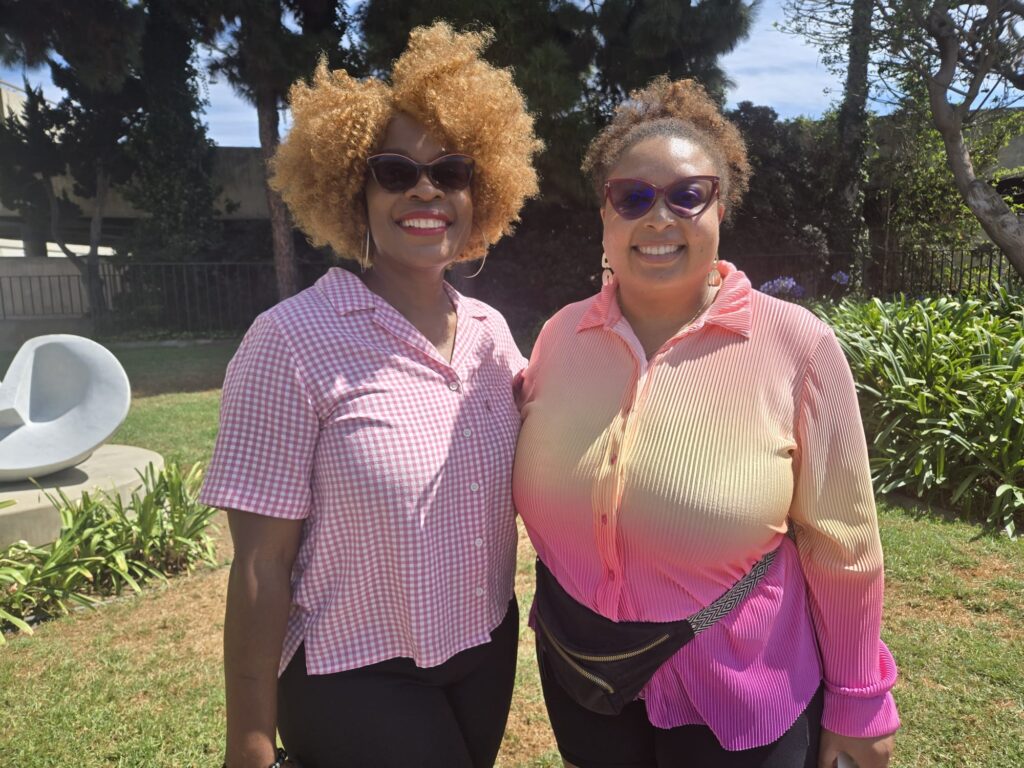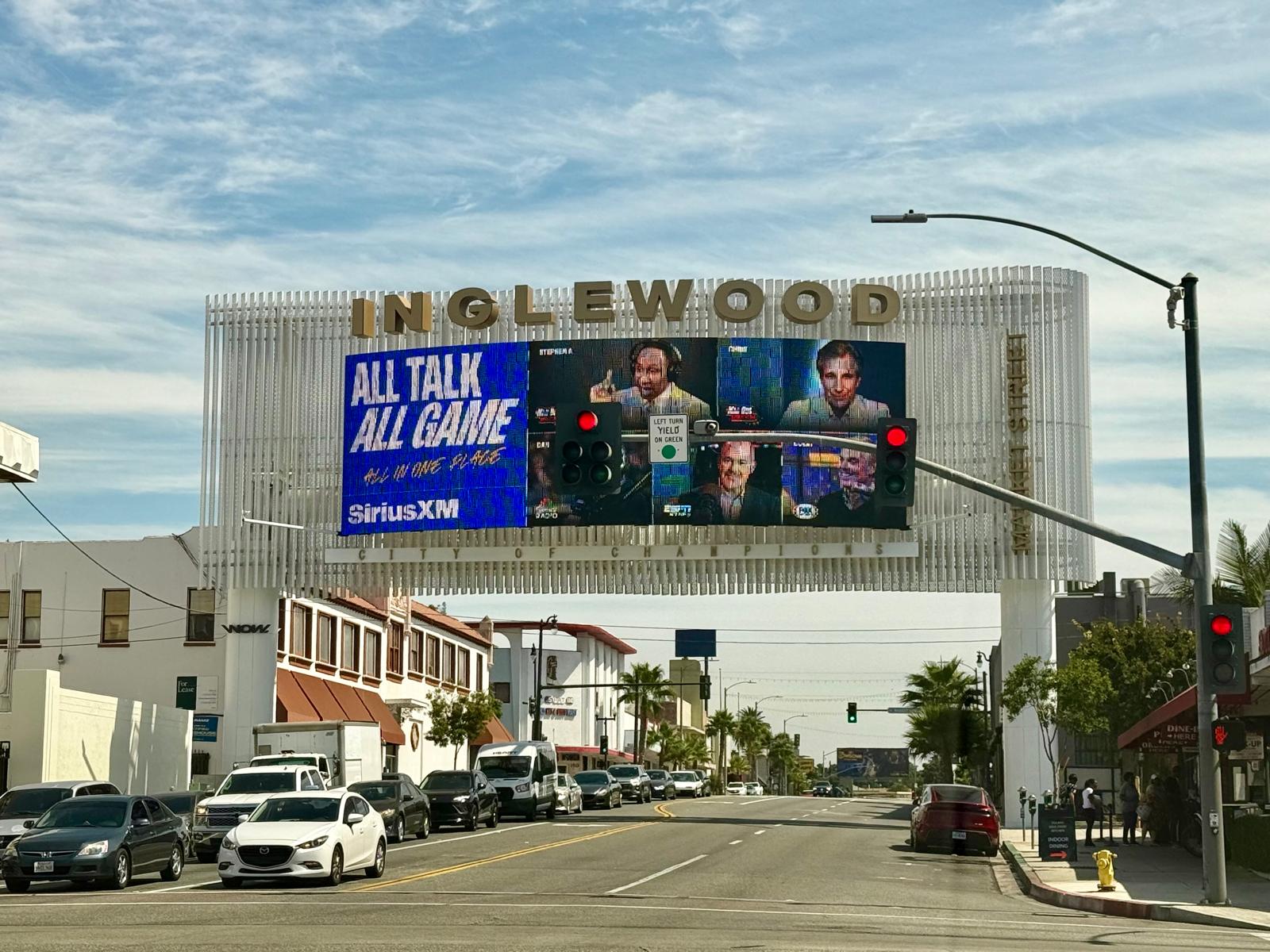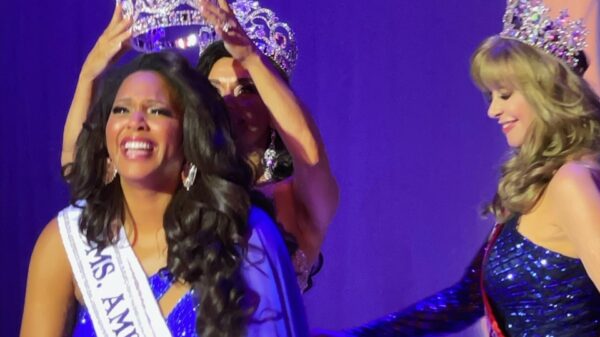As Inglewood grows with hotels and entertainment venues, residents like Cherella Nicholson — a local business owner and lifelong community member — say the city is still missing something vital: parks, pools, and green spaces that nourish health, culture, and community.
A City Without Shade
I spent an afternoon walking through Inglewood with a simple question in my heart: Where are the parks?
The city is alive with activity. There are new hotels sprouting up like glass towers, banners advertising shows and concerts, people streaming in and out of entertainment complexes, and neighborhoods buzzing with small businesses. At first glance, Inglewood looks like a city on the rise — modern, polished, and alive with possibility.
But as I walked further, I realized what was missing. There were no new green spaces. No shaded playgrounds where children could tumble and laugh. No public pools where families could cool down in the long California summers. Not even a simple walking trail or garden near City Hall or the public library. For all the money and energy pouring into buildings and stages, Inglewood seemed starved of the simplest, most democratic spaces: parks.
Outside City Hall and the library, I spoke to several residents, each sharing their frustration. They told me the same story in different words: the city is booming with development, but its parks remain stuck in the past. One mother shook her head: “Our kids need a safe place to play, not another hotel.” Another neighbor added: “We’ve got to have somewhere to cool down. A splash pad, a pool, something.”
Then I met Cherella Nicholson, a resident and business owner in Inglewood, and her words brought all those scattered voices into one. She became the anchor for what others were echoing.
The Voice of a Lifelong Resident

L-R Pamela Anchang and Inglewood resident Cherella Nicholson
Cherella’s relationship with Inglewood runs deep. She was raised here, left for college and career, and spent two decades away before returning a few years ago to be closer to family. In addition to living here again, she now runs a business in the city. That dual role — resident and entrepreneur — gives her perspective both as someone who calls Inglewood home and as someone investing in its future.
“I spent a lot of time at Rogers Park,” she recalled, her voice warming with memory. “We had basketball through the City’s Parks and Rec league. There were dances for teens — they’d bring in a DJ, and it was just for us. No adults, just a safe space where we could gather, play, and be kids. I even remember my mom signing me up for basketball when I was in elementary school. Summers were full of Boys and Girls Club programs, sports, and activities. We were always at the park.”
Those memories tell a story not only of a park but of a community. Parks were once the heartbeat of neighborhood life — spaces where children built confidence, teenagers formed friendships, and families could gather. They were places where culture was made.
Today, she says, that heartbeat feels fainter. “I haven’t seen any new parks yet. It’s still the same ones from back then. But the city has changed — there are more people, more hotels, more housing. We need more green. We need more balance.”
Her reflection matched what others had told me that day: the neighborhood is evolving, but its green spaces are standing still.
What Residents Dream Of
When asked to imagine the park she and her neighbors dream of, Cherella lit up. Her vision was expansive, layered with both nostalgia and forward-thinking ideas.
-
Roller Skating: “When I was growing up, roller skating was such a big part of Black culture. But so many rinks have closed. It would be wonderful to have a safe outdoor area for skating — for kids and adults. It’s exercise, it’s fun, and it’s cultural.”
-
Walking Trails: “I’m out here walking right now, just looping around the block before I go home. Imagine if we had a real trail? Seniors could enjoy it, families could stroll, people could exercise without worrying about traffic.”
-
Sports Facilities: Basketball courts, soccer fields, and even tennis and pickleball courts topped her list. Sports, she explained, bring people together and keep kids active.
-
Community Gardens: A peaceful garden where neighbors could read, reflect, and reconnect with nature. “Sometimes you just need a quiet spot to breathe,” she said.
-
Dog Parks: With more families adopting pets, a designated dog-friendly area would add to the park’s inclusivity.
-
Barbecue & Gathering Spaces: Shaded picnic areas with barbecue pits, and even rentable spaces for family gatherings, would bring back the sense of community celebrations. “I’ve seen parks in other cities where you can rent a shaded spot with pits and tables — it makes family time accessible for everyone.”
-
Amphitheater: “An outdoor stage would be amazing. Other cities have them, and they host summer concerts, festivals, and community events. Why can’t we?”
Off-camera, she added another dream: a splash park. “I saw one in Fresno. It was beautiful — jets of water shooting up from the ground, kids running through and cooling off in the summer. Inglewood’s children deserve that joy too.”
As she spoke, I remembered the other residents’ words. Their wishes mirrored hers: more play, more relief from the heat, more reasons to gather together. What Cherella outlined was not just her personal dream but a chorus of community longings.
Pools as Public Health
If there was one thing she was most passionate about, it was pools. Her voice grew firmer, more insistent. “Pools. Summer activities. Pools.”
She explained that pools are not a luxury. They are a necessity. “We still have to teach our kids how to swim. Some adults are only now learning. If there’s no public pool, where do families go? Not everyone has a backyard or a YMCA membership. Swimming is about safety, not just fun.”
This is where every resident I spoke to agreed. One elder told me, “We’ve got grandkids who can’t swim. That’s not safe. They need a pool close by.”
In Inglewood, as in many urban neighborhoods, the absence of public pools is more than an inconvenience — it is an equity issue. Access to swimming can mean the difference between safety and tragedy, confidence and exclusion. Pools also provide relief during brutal summer heat waves, which disproportionately affect lower-income communities without access to private cooling spaces.
The Mental Health Connection
But the call for parks wasn’t just about recreation. Cherella leaned in, her tone serious: “More green space is always great, especially for communities of color. We can just get out more, exercise more, get out of the house. Good for our mental health. Good for our physical health.”
The other residents echoed this, too. One young mother shared how her children are often stuck inside: “There’s no safe park nearby. They get restless, and I get stressed. We need somewhere for them to run and for me to breathe.”
The science backs them up. Studies show that access to green space reduces stress, improves mood, lowers blood pressure, and strengthens community ties. In neighborhoods where daily life is often overshadowed by traffic, noise, and economic pressures, a simple park can be a sanctuary.
For Cherella and her neighbors, the lack of parks isn’t just inconvenient — it feels like a denial of something fundamental. The right to breathe fresh air. The right to let children run without fear. The right to gather in joy.
Safety Through Dignity
When asked about safety, Cherella didn’t ask for more police or security cameras. Instead, her answer was simple: “I feel safe when it’s clean.”
To her, safety is about dignity — clean bathrooms, well-maintained grounds, regular hours that people can count on. It’s about showing residents that their presence is valued.
Others said the same. “Just open the community center more,” one neighbor told me. “Keep the park clean and lit. That’s all we need.”
Development Without Balance
What makes this gap especially glaring is the pace of Inglewood’s growth. The city is building — hotels, stadiums, entertainment districts. Money and energy flow freely into spaces designed to attract visitors. But for those who actually live here, everyday spaces are overlooked.
This is not just an Inglewood problem. It is the story of many park-poor neighborhoods across America. Cities are quick to invest in what is profitable, while the most essential commons — parks, pools, and public spaces — are left as afterthoughts.
The Call for Inclusion
Above all, Cherella emphasized one thing: “There should be a process to include community so we can share our voice of what we’d like to see.”
That same theme surfaced with every person I spoke to. Residents are not asking for charity. They are asking for partnership. They want to help design parks that reflect their culture, their families, their rhythms of life. They want spaces that honor their history and prepare their children for the future.
Why It Matters
Cherella’s dream park is not a fantasy. It is a blueprint for equity. Roller rinks that celebrate culture. Trails that honor elders. Courts that nurture youth. Gardens that soothe the spirit. Barbecue pits and stages that build community. Pools and splash pads that save lives.
And she is not alone. Her vision echoed through every voice I heard that day — mothers, elders, young professionals, neighbors all calling for the same thing: balance, dignity, and belonging.
Walking away from City Hall, I thought about how public space shapes possibility. Parks are where children learn to swim and where grandparents keep moving. They are where families celebrate birthdays, where neighbors hold block parties, where communities gather to sing, dance, and heal.
If Inglewood can build big stages for the world to watch, surely it can build the smaller stages its own people need — the kind where everyday life unfolds with dignity, joy, and belonging.
That first thing Cherella said she’d do in a new park? Jump in the pool.
I hope the people who plan our cities hear her — and all the residents who echoed her that day — and when they do, I’ll be there writing it down, bringing the neighborhood with me.
#Inglewood #PublicParks #GreenSpaces #CommunityVoices #PoolsForAll #SplashPark #SwimEquity #MentalHealthMatters #CommunityHealing #TheImmigrantMagazine #ImmiMedia #PamelaAnchang #VoiceOfImmigrants


